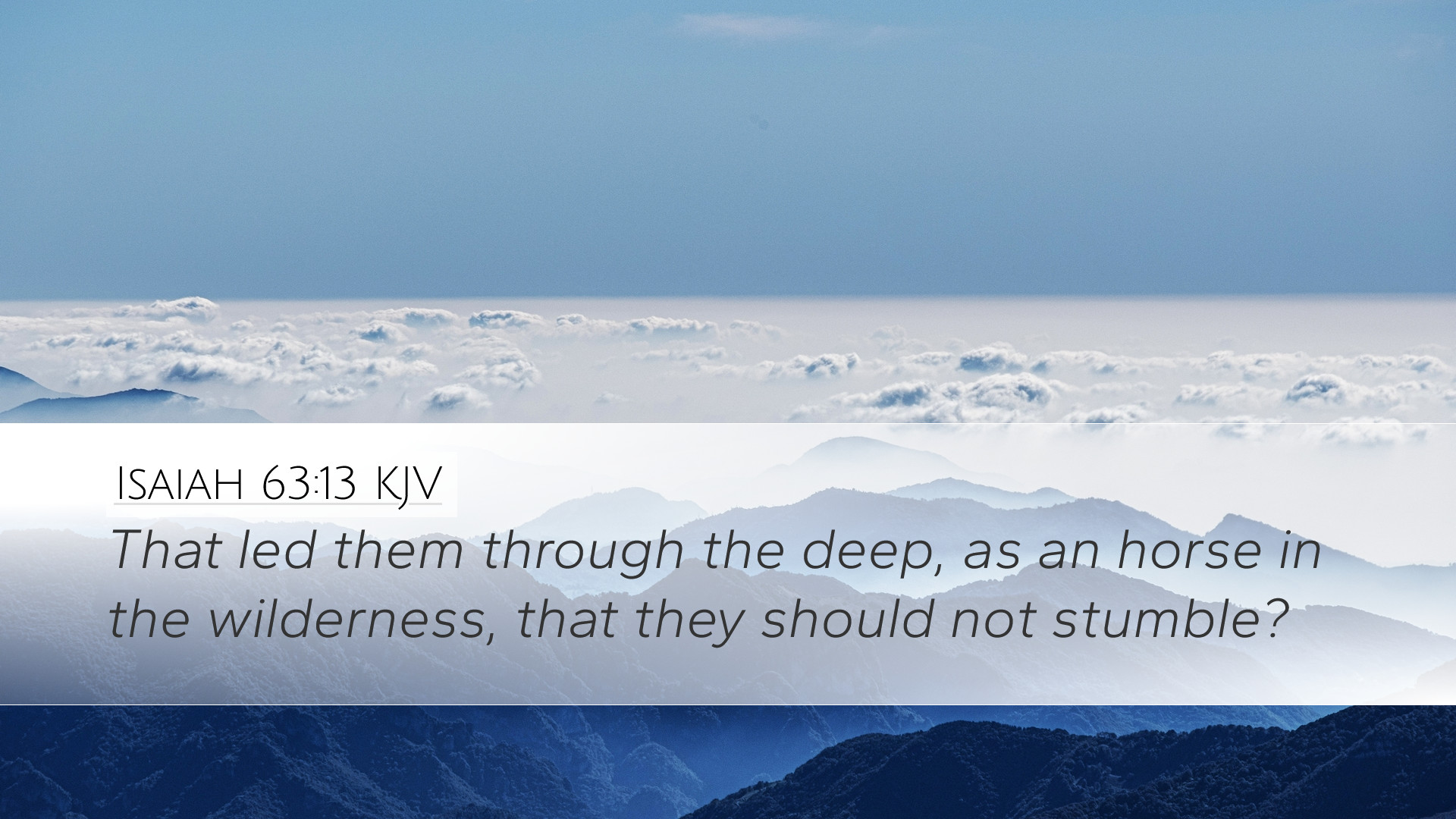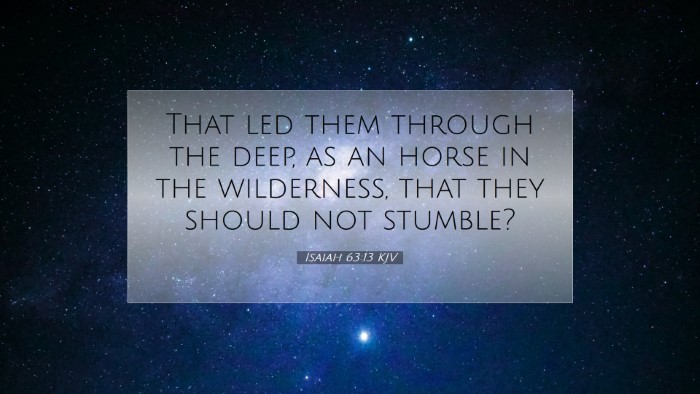Bible Commentary on Isaiah 63:13
Verse: "that led them through the deep, as an horse in the wilderness, that they should not stumble."
Introduction
This verse from Isaiah 63:13 presents a profound image of God's guidance of His people during their journey through difficulties. It illustrates the divine care and providence exercised towards Israel in their wanderings. The imagery captures both the majestic intervention of God and the tender shepherding nature of His leadership. This commentary synthesizes insights from reputable public domain sources to delve deeper into the theological implications and applications of this powerful verse.
Contextual Overview
Isaiah speaks to a post-exilic audience who needs reassurance of God's enduring presence and guidance. In the broader context, the chapter highlights God's redemptive work and His compassion towards His people, framing their struggles within a narrative of hope and restoration.
Commentary Insights
Divine Leadership and Guidance
Matthew Henry emphasizes that the phrase "that led them through the deep" acknowledges God's role as the sovereign leader of His people. This leadership is not merely directional but deeply relational, characterized by care and wisdom. The ‘deep’ symbolizes not just the physical trials faced by Israel at the Red Sea but also the spiritual depths of despair they encountered in their history.
Imagery of Strength and Stability
Albert Barnes illustrates the metaphor of "as an horse in the wilderness", clarifying that a well-trained horse does not stumble. This image suggests both strength and steadiness. God equips His people with the necessary tools to navigate through their wilderness experiences, ensuring they remain upright and secure amidst challenges. The wilderness represents trials, while God’s guidance offers assurance of stability.
The Call to Trust in God’s Provision
Adam Clarke remarks on the theme of faith illustrated in this verse. The assurance that "they should not stumble" serves as a reminder that God’s guidance instills confidence in believers. This faith is tested during trying times, yet assured in the belief that the Lord, who led the Israelites, will continue to guide His people today.
Theological Themes
This verse encapsulates several core theological themes pertinent to pastoral, scholarly, and theological discussions:
- Divine Providence: Reflecting upon God’s past works provides confidence for current and future guidance.
- Judgment and Mercy: The duality of God’s character is evident; while He leads with authority, He does so with mercy, a compassion that never abandons His people.
- The Journey of Faith: The wilderness experience is a common biblical motif representing trials; understanding God’s role as the guide reinforces trust in His plan.
- Christological Insights: The verse can also be seen through a Christological lens, showcasing how Jesus embodies this divine guidance, leading humanity through the ‘deep’ of sin and offering stability through faith.
Practical Applications
The following applications can be drawn from the insights of Isaiah 63:13:
- Encouragement in Trials: Pastors can encourage congregants who find themselves navigating their own wilderness, reminding them of God's faithful guidance.
- Faith during Uncertainty: Believers should be challenged to rely on God amidst the uncertainties of life, drawing strength from the assurance that He leads and protects.
- Community Reflection: The Church as a community should reflect on how they collectively experience God’s guidance, fostering a culture of support and encouragement in faith journeys.
Conclusion
Isaiah 63:13 serves as a powerful reminder of God’s enduring presence and caring guidance in our lives. As we reflect on this verse, may we be inspired to trust His leadership and embrace the journey He has set before us, knowing that even in the deepest waters, He walks beside us. The insights provided by Matthew Henry, Albert Barnes, and Adam Clarke equip us to understand the richness of this passage and its relevance for our faith today.


